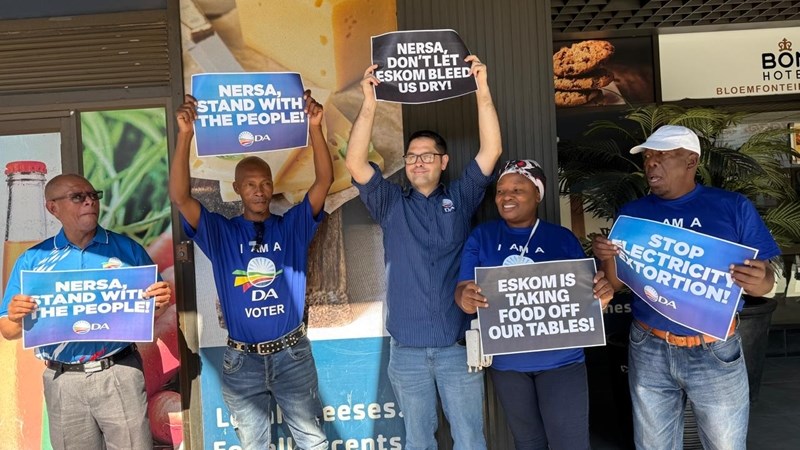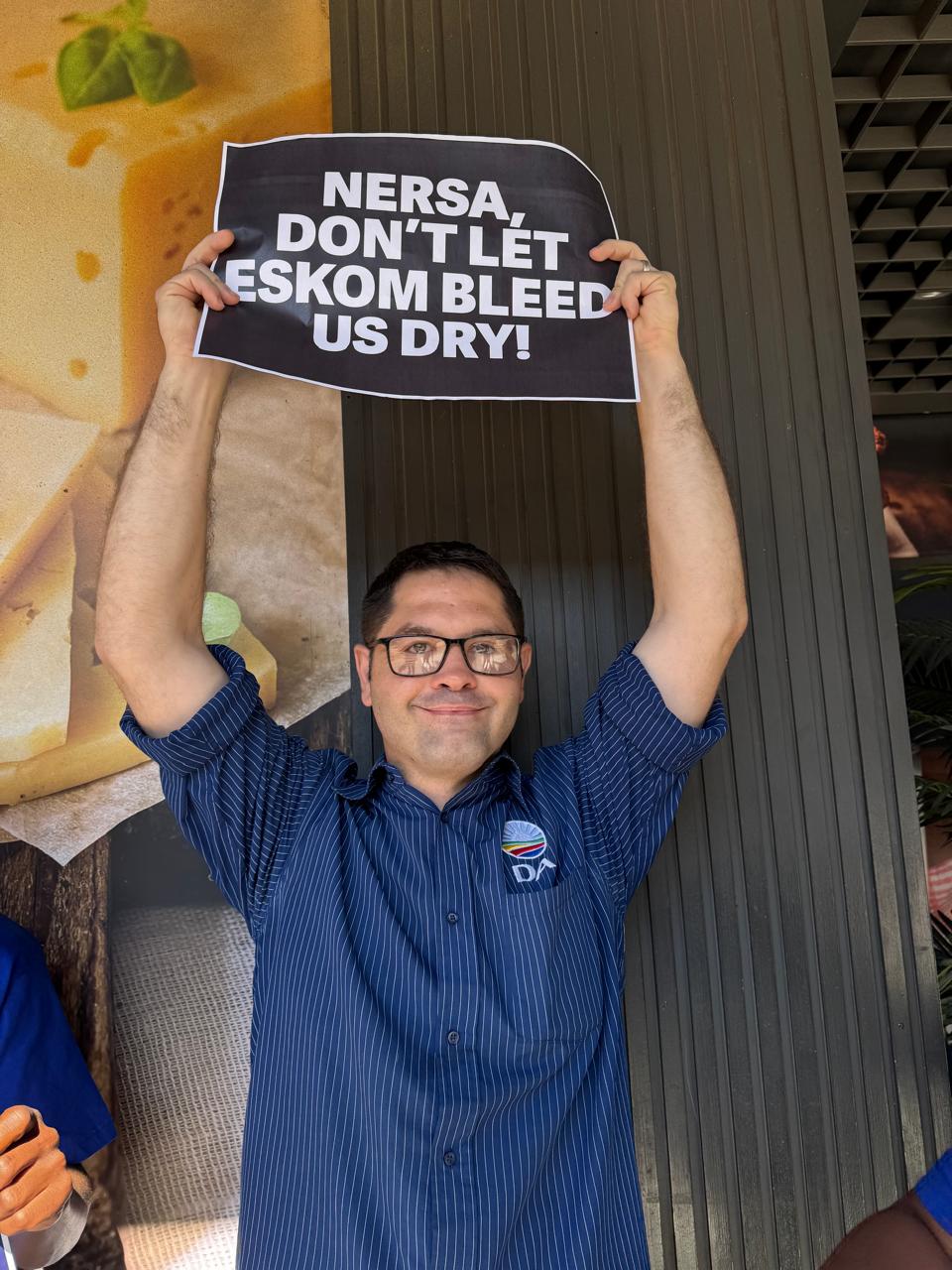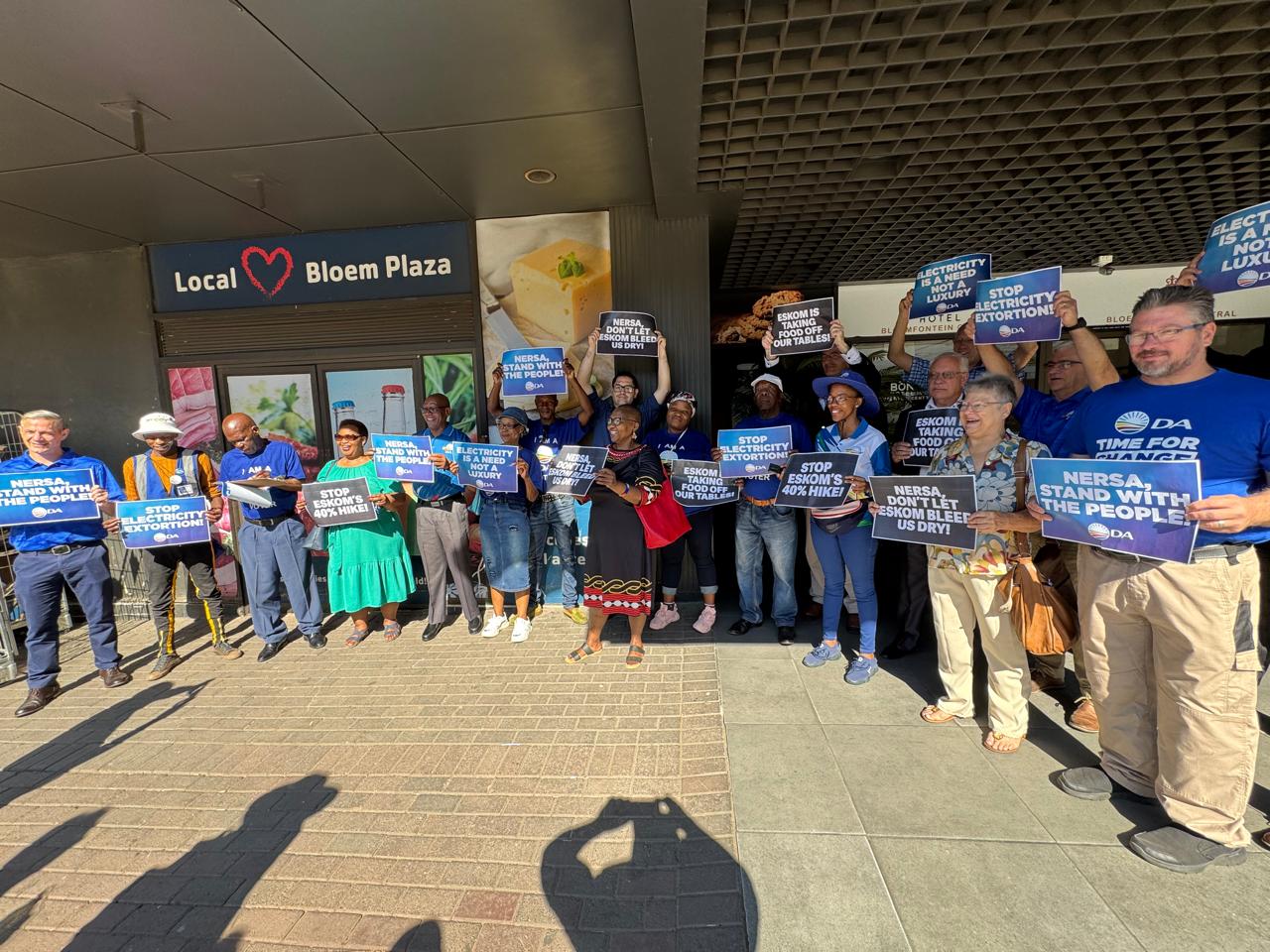Central SA
Protests over proposed electricity tariff hike─── HEIDRÈ MALGAS 12:14 Tue, 26 Nov 2024

SA’s agricultural sector is worried about how the proposed electricity tariff will affect farming and how this could lead to even higher food prices.
“The country is already experiencing a surge in grocery prices along with a proposed increase in electricity tariffs, grocery prices have stabilised and inflation is at its lowest level in four years, making it unrealistic for poorer and middle-income households to manage such a substantial rise,” said Werner Horn, Free State DA Deputy Provincial Chairperson.
Various parties, including the DA in the Free State and ActionSA, residents and other stakeholders, participated in a protest against the proposed electricity tariff increase on Monday (25/11) at the BON Hotel in Bloemfontein
“We are facing a proposed electricity tariff increase of between 36% and 40% next year. Such an increase, proposed by Eskom, is unsustainable. Expecting poorer and middle-income households to cope with this rise is unrealistic,” said Horn. 
DA Councillor, Tjaart van der Walt. Photo supplied
It’s time for Nersa, South Africa’s electricity regulator, to instruct Eskom to halt these increases, Horn said. Eskom should focus on internal improvements and rectify its inefficiencies.
“(It) must eliminate waste within (its) own operations and tackle the corruption and organised crime that lead to outages, sabotage, and ultimately to (its) exorbitant operating costs,” he added. “We hope Nersa will make the right decision by rejecting the tariff increase.”
Many municipalities, especially in the Free State and Gauteng, owe significant debts to Eskom. “To be clear, most of these debts belong to ANC-controlled municipalities. This poses a challenge, as within these municipalities are many bill-paying consumers.”
 Protesters outside BON Hotel demand lower electricity tariffs. Photo supplied
Protesters outside BON Hotel demand lower electricity tariffs. Photo supplied
He highlighted the unfairness to consumers who face service interruptions due to their municipalities’ failure to settle debts with Eskom.
It’s evident that if municipalities are unable to manage their affairs effectively during the financial year, especially regarding the funds collected from reselling electricity, a new model must be introduced, Horn said.
This model should involve Eskom, Salga, and possibly the National Treasury to assist and compel these municipalities to ring-fence and pay Eskom.
Agricultural representatives in Central South Africa also attended and presented how negatively the increased tariffs would affect farming and how this could lead to even higher food prices.
Stakeholders attended a discussion after the protest with key players like Eskom and Nersa to attempt to address and reduce the anticipated electricity rate hike.














